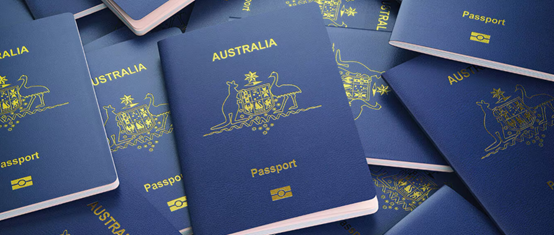Wage Requirements by State and Important Employer Obligations
Since wage levels can vary depending on the state, industry, and location, both employers and employees should be aware of factors affecting pay in different areas. Here are some key considerations for determining fair wages under the 482 Visa:
Compare with Local Employees: If an Australian worker is employed in the same role, the 482 Visa holder must be paid the same salary.
Industry Awards and Agreements: If there is no comparable Australian worker but an industry award or agreement exists, it can serve as the basis for determining a fair wage.
No Agreement Available: In cases where there are no applicable agreements, employers must use reliable sources such as job advertisements, salary surveys, or advice from industry associations to establish a fair rate.
Tip: Employees can independently research industry wages to better understand and negotiate their salary.

How to Calculate the Annual Market Salary Rate (AMSR)
When calculating the AMSR, employers should refer to various sources to ensure that they are offering competitive and fair compensation. Below are some common methods:
Job Outlook Data: Use government and industry websites to review typical salary levels and market trends for specific roles.
Recent Job Ads: Look at current job listings on local employment websites to gauge salary expectations for similar roles.
Salary Surveys: Use reputable industry salary reports to benchmark wages accurately.
Industry Advice: Consulting unions or employer associations can also provide insight into the standard pay for specific roles.
Tip: Visa holders can also use these resources to confirm that their pay aligns with market standards.
Basic Rights for 482 Visa Holders
Under both the Migration Act 1958 and the Fair Work Act (FWA), 482 Visa holders are entitled to several fundamental rights that safeguard their work conditions in Australia. These protections include:
Standard Work Hours: Full-time employees are limited to a standard 38-hour workweek, with any additional hours requiring justification as “reasonable.”
Paid Leave: Employees are entitled to paid annual leave, sick leave, parental leave, family and domestic violence leave, and more.
Superannuation Contributions: Employers are required to contribute to employees' superannuation funds as mandated by law.
Transparent Payment: Wages must be paid via bank transfer or cheque to ensure accountability.
Additional Protections under the Migration Act 1958
Australia’s migration laws provide further safeguards to 482 Visa holders:
Equal Pay: Employers must provide equal pay to 482 Visa holders in roles comparable to those of Australian workers.
Specific Job Duties: Visa holders are only allowed to perform duties relevant to the position approved under their visa.
Return Travel Costs: Employers must cover the costs of returning the employee and their family to their home country if required.
Prohibition of Recruitment Fees: 482 Visa holders cannot be charged for recruitment or sponsorship fees.
Work Authorization: Visa holders can only work for their approved sponsor employer and cannot work for other employers without official permission.
Steps to Take if You’re Not Being Paid Fairly
If you believe your pay does not meet the 482 Visa minimum wage requirements, you can take the following steps to address the issue:
Step 1: Collect Evidence
Review Your Contract and Payslips: Confirm that your salary aligns with the TSMIT and AMSR requirements in your contract and recent payslips.
Check Industry Rates: Use sources like the Fair Work Commission website, salary surveys, or advice from industry bodies to verify your salary level.
Step 2: Discuss with Your Employer
Request a Meeting: Schedule a private meeting with your employer or HR representative to discuss your concerns about meeting the 482 Visa wage requirements.
Present Your Evidence: Share your contract, payslips, and any AMSR research to substantiate your claim.
Seek a Resolution: Politely but firmly request that your salary be adjusted to meet the minimum wage requirements as outlined by the 482 Visa regulations.
Tip: Maintain a calm and professional tone throughout the conversation, and focus on meeting compliance standards rather than personal grievances.
Step 3: Seek External Support if Necessary
If an internal discussion does not resolve the issue, you can consider these options:
Contact the Fair Work Ombudsman (FWO): The FWO provides confidential advice and support for wage-related issues.
Find a Compliant Employer: You may choose to seek employment with another employer who meets the wage requirements.
Consult a Lawyer: If needed, labor or immigration lawyers can provide legal assistance to ensure compliance and protect your rights.

The minimum wage standard for the 482 Visa is not just a number—it’s about ensuring that international workers have fair and sufficient compensation while working in Australia. By understanding the requirements and maintaining open communication with employers, 482 Visa holders can protect their rights and enjoy a more secure experience working in Australia. Employers, on their end, must adhere to these standards to foster an equitable workplace and avoid non-compliance issues.
For more information about Australian work visas or workplace rights, consult with AHLlegal experts or contact the relevant Australian government agencies for assistance.



 1300 91 66 77
1300 91 66 77







 HOME
HOME


